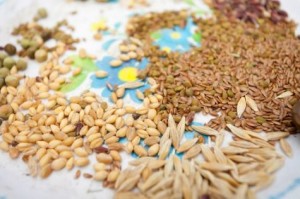AGROECOLOGY AND THE RIGHT TO FOOD – A REPORT BY THE SPECIAL RAPPORTEUR ON THE RIGHT TO FOOD
The reinvestment in agriculture, triggered by the 2008 food price crisis, is essential to the concrete realization of the right to food. However, in a context of ecological, food and energy crises, the most pressing issue regarding reinvestment is not how much, but how. This report explores how States can and must achieve a reorientation of their agricultural systems towards modes of production that are highly productive, highly sustainable and that contribute to the progressive realisation of the human right to adequate food.
Drawing on an extensive review of the scientific literature published in the last five years, the Special Rapporteur identifies agroecology as a mode of agricultural development which not only shows strong conceptual connections with the right to food, but has proven results for fast progress in the concretization of this human right for many vulnerable groups in various countries and environments. Moreover, agroecology delivers advantages that are complementary to better known conventional approaches such as breeding high-yielding varieties. And it strongly contributes to the broader economic development.
The report argues that the scaling up of these experiences is the main challenge today. Appropriate public policies can create an enabling environment for such sustainable modes of production. These policies include prioritizing the procurement of public goods in public spending rather than solely providing input subsidies; investing in knowledge by reinvesting in agricultural research and extension services; investing in forms of social organization that encourage partnerships, including farmer field schools and farmers’ movements innovation networks; investing in agricultural research and extension systems; empowering women; and creating a macro-economic enabling environment, including connecting sustainable farms to fair markets.

